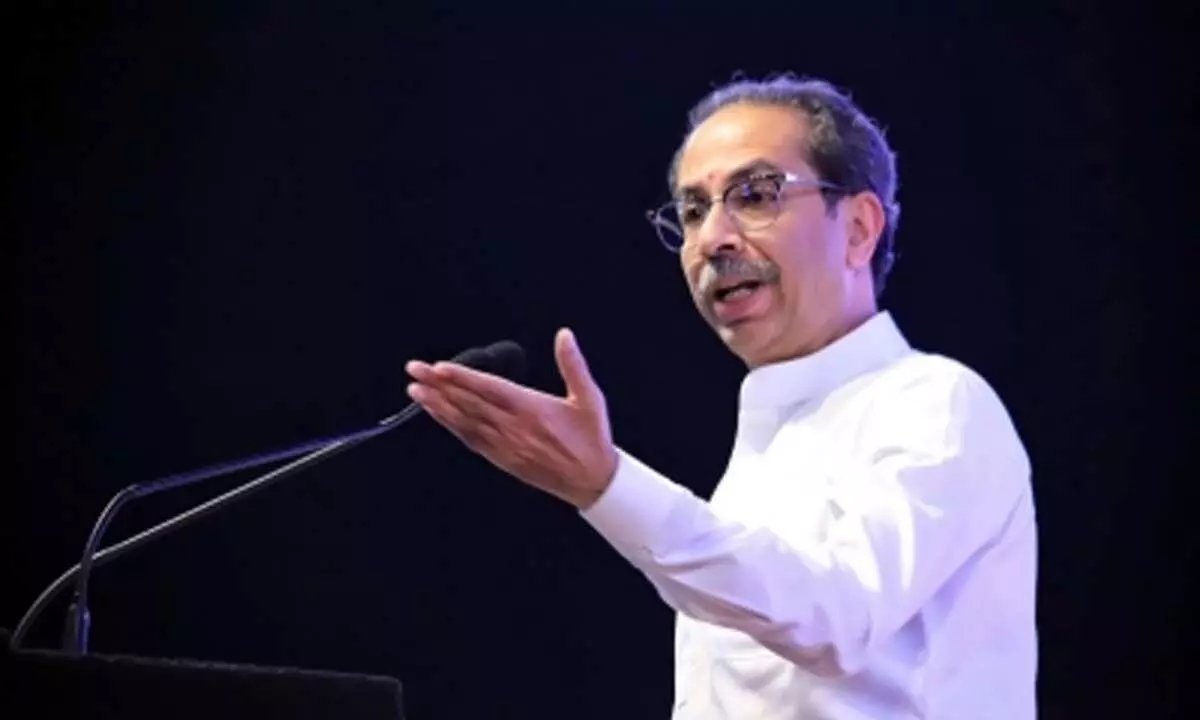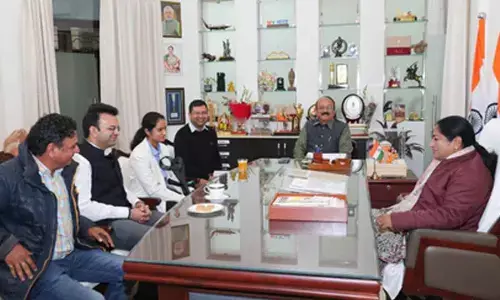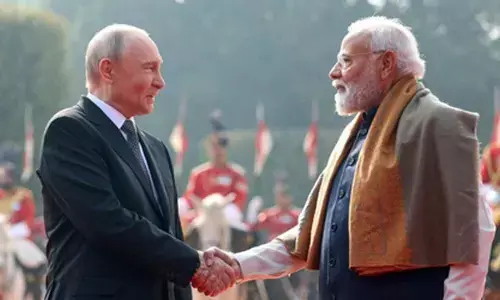Uddhav Thackeray didn't face the floor test and resigned but Governor erred: Supreme Court
Share :

Maha Vikas Aghadi leader Uddhav Thackeray
The Supreme Court on Thursday said that had Maha Vikas Aghadi leader Uddhav Thackeray refrained from resigning from the post of Maharashtra Chief Minister
New Delhi: The Supreme Court on Thursday said that had Maha Vikas Aghadi leader Uddhav Thackeray refrained from resigning from the post of Maharashtra Chief Minister, it could have considered the grant of the remedy of reinstating the government headed by him while also castigating then Governor Bhagat Singh Koshyari for asking Thackeray to prove his majority in the Assembly.
A five-judge bench, headed by Chief Justice of India D.Y. Chandrachud, also said the political party and not the legislature party appoints the whip and the leader of the party in the House and the direction to vote in a particular manner or to abstain from voting is issued by the political party and not the legislature party.
"The decision of the Speaker as communicated by the Deputy Secretary to the Maharashtra Legislative Assembly dated July 3, 2022 is contrary to law. The Speaker shall recognise the Whip and the Leader who are duly authorised by the Shiv Sena political party with reference to the provisions of the party constitution, after conducting an enquiry in this regard," said the bench, also comprising Justices M.R. Shah, Krishna Murari, Hima Kohli, and P.S. Narasimha.
However, the top court refrained from declaring the current regime led by a rebel Shiv Sena leader Eknath Shinde as illegal.
"Mr. Thackeray did not face the floor test on June 30, 2022 and instead submitted his resignation. This Court cannot quash a resignation that has been submitted voluntarily. Had Mr Thackeray refrained from resigning from the post of the Chief Minister, this court could have considered the grant of the remedy of reinstating the government headed by him," it said.
The apex court declared that the Governor was justified in inviting Shinde to form the government subsequently on June 30, 2022, since the BJP, with the highest 106 MLAs, and eight Independent MLAs extended support to him.
The bench also noted that the resolution passed by Shiv Sena Legislative Party (SSLP) on June 22, 2022 brought to the attention of the Speaker that it was passed by a faction of the SSLP. Thus, the Speaker by recognising the action of a faction of the SSLP without determining whether they represented the will of the political party acted contrary to the provisions of the Tenth Schedule, the 1986 Rules, and the Maharashtra Legislature Members (Removal of Disqualification) Act 1956, it said.
Chief Justice Chandrachud, who authored the judgment on behalf of the bench, said: "The decision of the Speaker recognising Mr. Shinde as the leader is illegal. The Speaker must recognise the Whip and the Leader who are duly authorised by the political party with reference to the provisions of the party constitution, after conducting an enquiry in this regard and in keeping with the principles discussed in this judgement."
The bench observed that on June 21, 2022, there was no material on record before the Deputy Speaker for him to doubt that the resolution of SSLP dated June 21, 2022 (appointing Ajay Choudhari as the leader of the SSLP) was de hors the political party, or that two factions of the party had emerged.
"The resolution was signed by Mr. Thackeray in his capacity as the party president much like the resolution appointing the Whip and Leader in 2019. This makes it evident that Mr. Thackeray issued the communication on behalf of the political party. Thus, the decision of the Deputy Speaker recognising Ajay Choudhari as the Whip in place of Mr. Eknath Shinde is valid," said the bench.
The top court declared as illegal a decision of the Speaker to appoint Bharat Gogawale as Chief Whip of Shiv Sena on nomination by Shinde group and refused to accept Shinde faction's contention that the Chief Whip is appointed by the legislature party and not the political party.
It also referred the 2016 constitution bench judgment in Nabam Rebia case, which restricted the power of Speaker to decide disqualification petition in view of pendency of motion of removal against him, to a seven-judge constitution bench due to its adverse impact on the Tenth Schedule (anti-defection law).
After this verdict, Speaker Rahul Narwekar can decide disqualification petitions filed by both Thackeray and Shinde groups against each other and a fresh legal battle is anticipated after the decision of Narwekar, a BJP MLA.
The bench said: "The Speaker and the ECI are empowered to concurrently adjudicate on the petitions before them under the Tenth Schedule and under Paragraph 15 of the Symbols Order respectively."
"The effect of the deletion of Paragraph 3 of the Tenth Schedule is that the defence of 'split' is no longer available to members facing disqualification proceedings. The Speaker would prima facie determine who the political party is for the purpose of adjudicating disqualification petitions under Paragraph 2(1) of the Tenth Schedule, where two or more factions claim to be that political party," it said.
On the Governor's action after the rebellion by Shinde and his supporting MLAs, the bench concluded: "The Governor was not justified in calling upon Mr. Thackeray to prove his majority on the floor of the House because he did not have reasons based on objective material before him, to reach the conclusion that Mr Thackeray had lost the confidence of the House. However, the status quo ante cannot be restored because Mr. Thackeray did not face the floor test and tendered his resignation; and The Governor was justified in inviting Mr. Shinde to form the government."
The top court said it cannot ordinarily adjudicate petitions for disqualification under the Tenth Schedule in the first instance. "There are no extraordinary circumstances in the instant case that warrant the exercise of jurisdiction by this court to adjudicate disqualification petitions. The Speaker must decide disqualification petitions within a reasonable period," it said.
"An MLA has the right to participate in the proceedings of the House regardless of the pendency of any petitions for their disqualification. The validity of the proceedings of the House in the interregnum is not subject to the outcome of the disqualification petitions."
On March 16, the Supreme Court after hearing submissions for nine days reserved its judgment on a batch of cross-petitions of Uddhav Thackeray and Eknath Shinde groups in connection with the Maharashtra political crisis.













